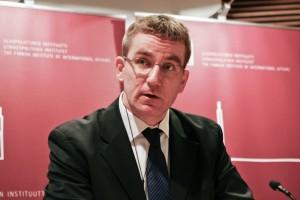The Crimean operation in the spring of 2014 was in many ways a watershed for European security. It brought into focus Russia’s ability to combine a full spectrum of means in securing what are seen as the country’s core national security interests. The view of Russian military capabilities changed dramatically from being perceived as an inefficient, outdated and badly organised system into one which poses a serious threat to its neighbours, the whole of Europe, and global peace. The questions of how Russia constructs its policies, how they materialise, and what the possible responses should be will be discussed by leading international scholars and practitioners. The first part of the seminar will focus on what Russia does: what is strategic deception, and how does it work? How might insights from Soviet era research on propaganda and disinformation help in understanding the contemporary situation? Does Russia’s propaganda narrative work as planned? The second part of the seminar concentrates on security trends: how much is new and how much is based on old practices implemented in a new way? How does Russia fit into European security and how should Europe respond to Russia?
The seminar is a joint effort of two research projects. The Finnish Institute of International Affairs project on Russian strategic communication on the Ukraine crisis is funded jointly by the Finnish Ministry of Defence, FIIA, and the International Visegrad Fund. The Aleksanteri Institute’s project ”Russia and Hybrid warfare: definitions, scope, capabilities and possible responses” is funded from the government’s analysis, assessments and research activities fund, coordinated by the Finnish Prime Minister’s Office. The seminar also marks the launch of the FIIA Report ”Russian Strategy of Deception and the Conflict in Ukraine” edited by Katri Pynnöniemi and Andras Rácz.
PROGRAMME
10:45 – 12:15 How should we respond to changes in the European security environment, warfare and Russia?









